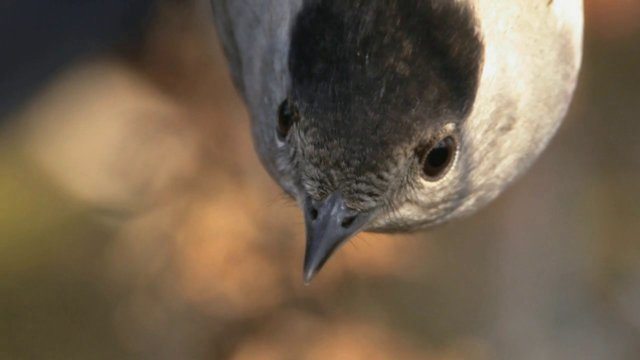
 Adapted from Jonathan Franzen’s 2010 article in The New Yorker about illegal bird poaching in Europe, Emptying the Skies approaches its subject from a very humanistic perspective. It’s a smart way to go, as some of these films can get bogged down by the strict, serious self-importance they imbue their stories with. Instead, Emptying The Skies begins by introducing us to our planet, calmly reminding us that this is where we live. “These are the times of the killing off of animals”, an ominous title card tells us, as we are ushered into this story. It felt like a mythological world was being presented to us, some far-away place from here, a planet not our own.
Adapted from Jonathan Franzen’s 2010 article in The New Yorker about illegal bird poaching in Europe, Emptying the Skies approaches its subject from a very humanistic perspective. It’s a smart way to go, as some of these films can get bogged down by the strict, serious self-importance they imbue their stories with. Instead, Emptying The Skies begins by introducing us to our planet, calmly reminding us that this is where we live. “These are the times of the killing off of animals”, an ominous title card tells us, as we are ushered into this story. It felt like a mythological world was being presented to us, some far-away place from here, a planet not our own.
Jonathan Franzen tells of his initial involvement with the subject as we are introduced to several anti-bird poaching activists in Europe. Various accents and dialects across Italy, Germany, and France explain how this topic began to consume their lives. They live in homes entrenched in nature, and birds surround the interviews. They speak passionately about their love of birds, and the importance of their place in our ecosystem. The rallying cry is to protect these animals from the greed, cruelty, and all too prevalent indifference of this business-minded sector of humanity. In Italy, we’re introduced to the committee against bird-slaughter, or CABS.
These are our main characters for the duration of the swiftly paced documentary. It’s a small group of activists, but it has only gotten stronger as the seasons have passed. They go on “missions” across Europe every season on their own dime, in between their professional and personal lives. That this group is mostly comprised of lifelong friends gives us a comforting, approachable engagement with the protagonists. After we get to know them, we are effectively invested in their personal safety. At first, freeing birds stuck in glue-traps seems like a fairly harmless pastime, but we quickly learn how hostile and aggressive the poachers can be once they notice intruders on their territory, jeopardizing their profit-margin. The handheld camera during these missions only adds to the frantic tension of these moments. Every second that our CABS heroes are in hostile territory generates a sense of protective anxiety. You want them to be quiet, careful, and get out of there quickly.
The insinuation of danger quickly transforms to actual violence. Poachers, faces blurred, push and shove the CABS members, punch them, hit them with rocks. Police is called, our heroes are shaken and full of adrenaline. Someone has to go to the local hospital. The threat of violence increases as we are told tales of past activists who were shot at, harassed and ran out of the woods by the highly militant poachers. Someone was killed in the very spot our heroes visit at one point. This is not a laid-back affair anymore, and things could go awry any minute. As one of the main CABS members whispers into the camera how popular this particular poaching area is, gunshots sound off and echo through the valley. He looks at the cameraman and reveals that we are on land owned by the man hunting, shooting nearby, and that they are currently freeing birds from his traps. Its intense.
Emptying the Skies goes into the demand of bird poaching in regards to the local food industry, as well. There are strikingly graphic photographs shown of dead birds, videos of them getting decapitated, cooked, and eaten by fancy restauranteurs. These birds are sold at 40-50 Euros a pop, and poachers trap thousands of them every season. Business is booming, and the status-quo has been maintained for a long time. Though anti-poaching legislation was passed by the European Union, its a largely unenforced, limp political document. We’re told of how the sale of these birds is a large part of the local mafia’s profits. The last act of this documentary focuses on the politics and on-the-ground realities. CABS has been putting pressure on the local government to actually enforce their laws and turn their talk into action. The next morning, a broken lime-encrusted branch, a glue-trap used to capture birds, is left in the parking lot of the hotel our characters are staying in. A sign of warning from the mafia. The tires of all 12 cars in the parking lot are slashed. The message is clear. Stop what you’re doing - or else. You wouldn’t think it was going to get this deep, but Emptying the Skies arrives at these moments of terror organically and thrillingly. But the film doesn't end on a negative note, instead seeing the affirmation of life the characters find, gleaned by releasing left-for-dead birds into the sky, is inspiring and beautiful.